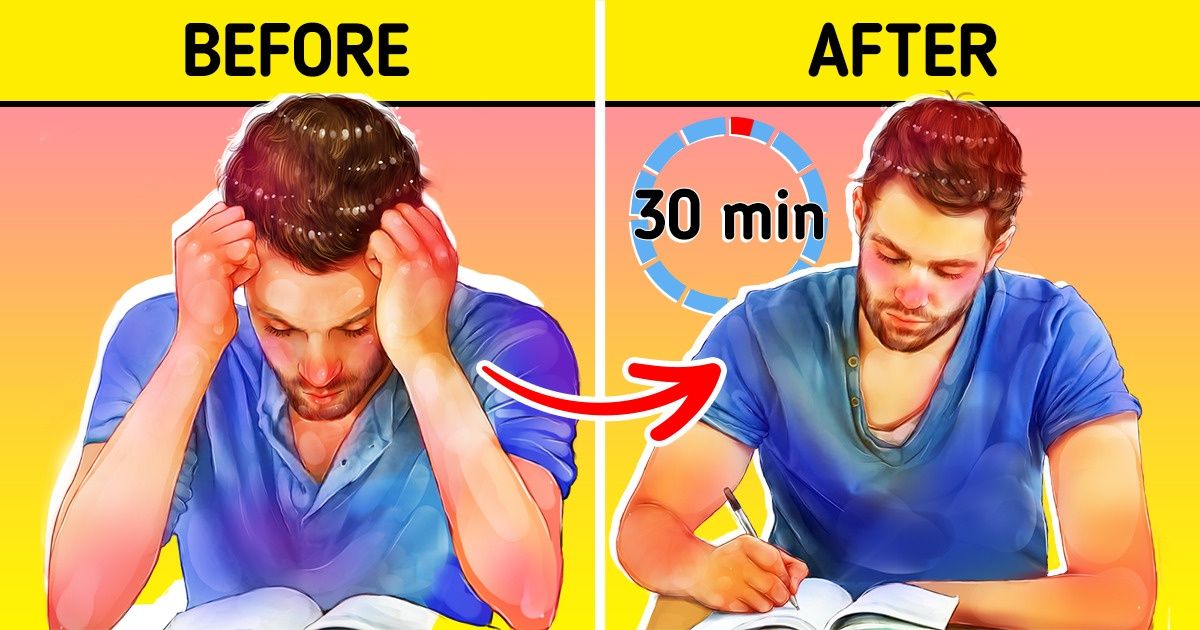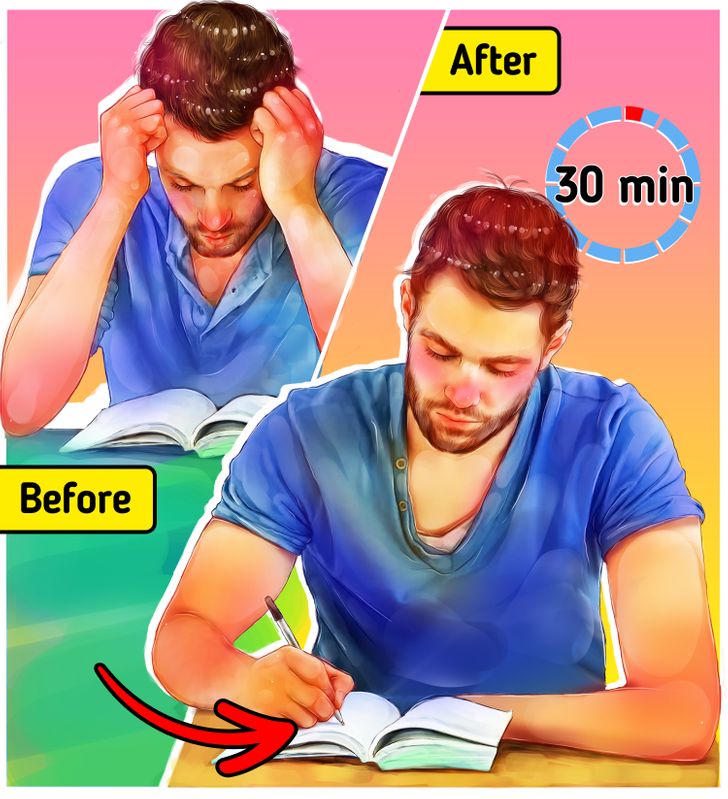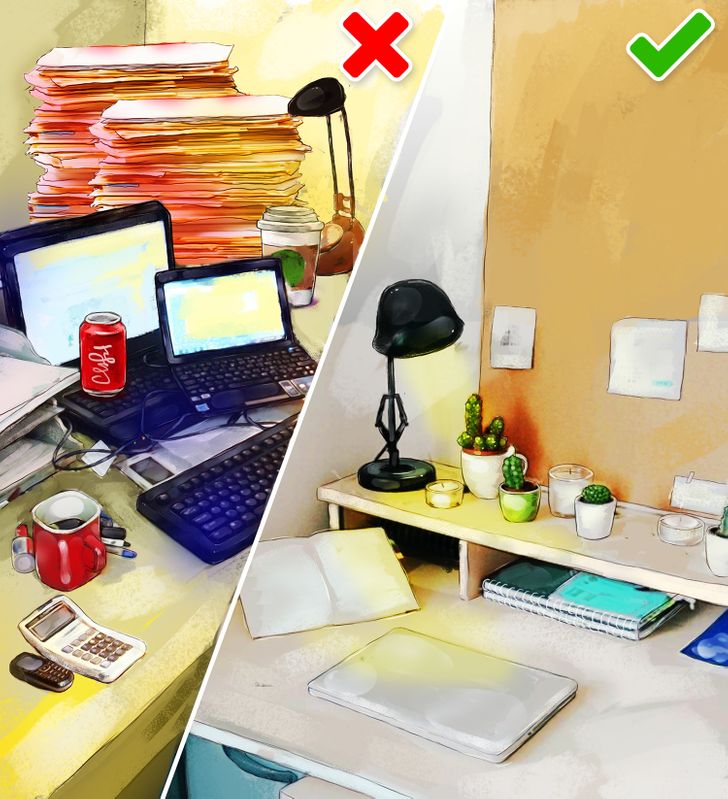How to Study More in Less Time

Studying for hours and hours on end isn’t as beneficial as you might think it is. It’s more effective to take short breaks after 30 minutes of studying. That being said, there are other tips to help you retain information better. We at 5-Minute Crafts will share them with you.
1. Study for short periods of time.

Make sure to take a break for every 30 to 40 minutes you’ve studied. It’ll help you recharge as well as make sure you use your active study time effectively. If you want, you can also set a specific amount of time to focus on one subject in particular. This way, you’ll always be sure that there’s still enough time for other subjects.
2. Declutter your environment.

In order to be more productive, you should try and rid your workspace of unnecessary clutter. Afterward, tidy up what’s left of the mess. This might help you get your thoughts in order since a messy room usually ends up causing a stressful studying environment.
3. Review on a regular basis.

If you review things often, you’ll retain more information as well as understand it better. Simple things, like reading your notes within 24 hours of learning the material, and then doing it weekly, will help.
4. Distribute your studies.

Try not to cram everything in your head right before the exam. It’s more efficient to study gradually as the weeks pass by. That’s because it’s likely not possible to gobble up an entire textbook worth of information in just a week or 2.
5. Simplify your notes.

A great way to do this is by highlighting keywords and creating visual aids. Things like charts, mind maps, or even outlines will help you organize and simplify your study material. It’ll help you remember things better while making studying less overwhelming.
6. Try studying with music on.

Granted this won’t be good for everyone, but it might help some people to be more productive as well as more focused. If there’s noise inside your house, it can also drown it out. Try to listen to relaxing orchestral music while you study, rather than heavy metal, for example. Chances are you’ll be less focused on the latter.